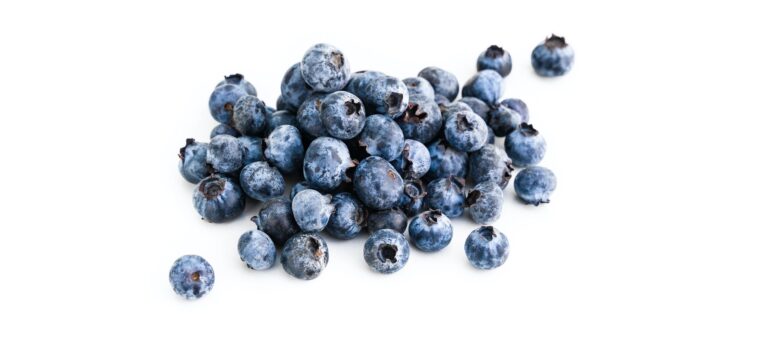The King of Berries: Blueberries

By
Arpana Church, PhD with Alex Foyt and Zheng Qu
The most nutritionally dense out of all the berries.
Blueberries are so popular as a healthy and nutritious source that they have often been termed a “superfood”. What is a superfood one may ask? Personally, for me the term conjures up flying food with a cape blowing in the air and some connotation to superman like qualities! The reality may actually not be that far from the image. Although the term superfood is not really scientifically based and is really a product of marketing tactics, superfoods have been labeled as such because of their nutritionally dense characteristics.
In fact, blueberries have various known benefits, and it is the most nutritionally dense out of all the berries. One can indulge is a cup of blueberries without worry as it is low in calories (84 calories), has little contribution coming from carbohydrates (15 grams), and is packed with important nutrients such as fiber, Vitamin C and Vitamin K, and manganese.
Blueberries have also been commonly known to be the most effective antioxidant. In other words, they help protect the body from the oxidation process and stress, which leads to a chain reaction associated with cell damage, aging, and diseases like cancer, diabetes, and heart disease (for example help lower cholesterol blood pressure). In fact, blueberries are rich in a specific antioxidant known as polyphenols called flavinoids. The health benefits of polyphenols are widespread and dramatic, ranging from the brain related to neurogenerative disease and cognition to the rest of the body such as digestion and inflammation.
Blueberries have been shown to improve brain function merely after a few weeks of consistent consumption. For example, blueberries can lower dementia or Alzheimer’s risk, and improve age-related memory loss and concentration. Other studies show improvements in cognitive tasks related to executive function and even mental health. These effects are mainly mediated through the increased production of the feel good neurotransmitter, serotonin. Although, most of these studies are preliminary and use animal models, they hold promise for future human trials.
At the gut level, blueberries can help with intestinal immune responses and dysbiosis (think of the mucus lining in the gut from breaking down and being able to function appropriately). This translates to observed prebiotic effects such as the promotion of abundance of beneficial bacteria in the gut, the further production of serotonin (neurotransmitter that makes us feel happy). Together, these beneficial effects decrease chances of developing health issues such as cognitive decline, obesity and diabetes.
Not only do blueberries look vibrant and taste fabulous, they have various health benefits (i.e., are phytochemicals). They are also versatile and can be used in so many forms. Getting the nutritional value from blueberries targeting both the brain and the gut may not be that difficult after all.
